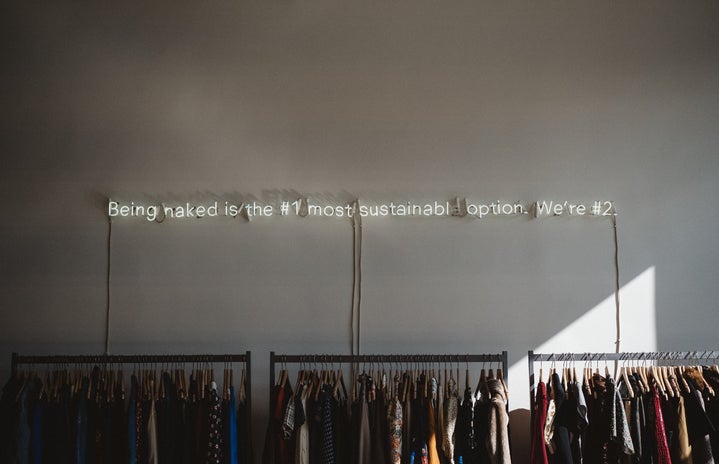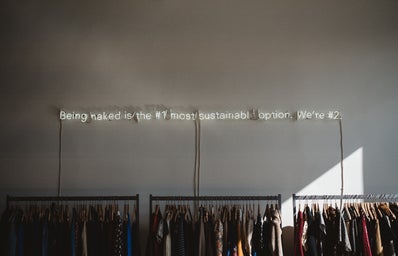On Sep. 19 the silencing tick of the irreversible climate change clock fell over the world. Seven years and change is all that was legible in the Union Square of New York City. Seven years and change until climate change becomes irreversible. Seven years until the clock runs out and the last grain of sand drops from the hourglass. In the amount of time it takes for a second to tick by or a grain of sand to make the eternal fall silence will have fallen over the world again. Companies around the world are becoming more conscious of their environmental impact in a last-minute attempt to beat the clock. Just like a quarterback down by six points, fourth down with 20 yards and 15 seconds to go, companies are throwing one last Hail Mary pass to outrun the timer.
Industries so prominent and influential, such as the fashion industry, have valiantly tried to remedy their carbon footprint impression. The fashion industry is known for polluting the Earth through 3 taxing processes. Untreated toxic wastewaters are a byproduct of textile factories and garment production. These wastewaters are dumped into bodies of water where their toxins damage the health of aquatic and human life. The list of toxins includes lead, mercury and arsenic, which can be poisonous if the dosage is high enough. Freshwater is limited in its amount, causing major water shortages all over the world. According to Sustain your Style, one ton of dyed fabric requires as much as 200 tons of freshwater in addition to the 20,000 liters required to produce one kilogram of cotton. Desertification marks the environmental repercussions of fast fashion in places like the Aral Sea, leaving nothing but an empty reservoir behind, no drop of water in sight. Waste pile-up from thrown out clothing can take up to 200 years to decompose, with only 15% of all clothing ever being reused, donated or recycled. Synthetic fibers are not biodegradable and make up a majority percentage of clothing, which is the cause for the build-up and non-recycled clothes. To learn more about the side effects of fast fashion on the environment check out this resource.

Brands have popped up all over the world who specialize in environmentally-friendly fashion, using recycled products and treating their wastewater while refraining from dumping it. The following brands not only focus on being ecologically conscious, but these brands also provide safe workspaces and fair wages.
Kotn is a company based in Egypt whose mission is to transform the fashion industry from the ground. By creating their own fabrics from raw materials and purchasing the cotton personally from farming communities, they are boosting the economic prosperity of those in need.
Tradlands specializes in androgynous clothing, with a niche in women’s clothes inspired by menswear and structures for all body types. Minimal waste is a major value of theirs, utilizing sustainable fabrics that are made with passion to ensure a level of personal touch.
Toad&Co built their company around the use of organic and recycled materials to upcycle and recreate fashion from old materials to limit the amount of oppressive waste in society. Going above and beyond, Toad&Co has two systems in place for customers to send back both packaging and old clothing to the company to be reused.
Many brands offer an alternative to fast fashion with humanitarian and environmental moral guidelines that provide better conditions for the workers, farmers and the world and freeze the doomsday clock.
Want to see more HCFSU? Be sure to like us on Facebook and follow us on Instagram, Twitter and Pinterest!



